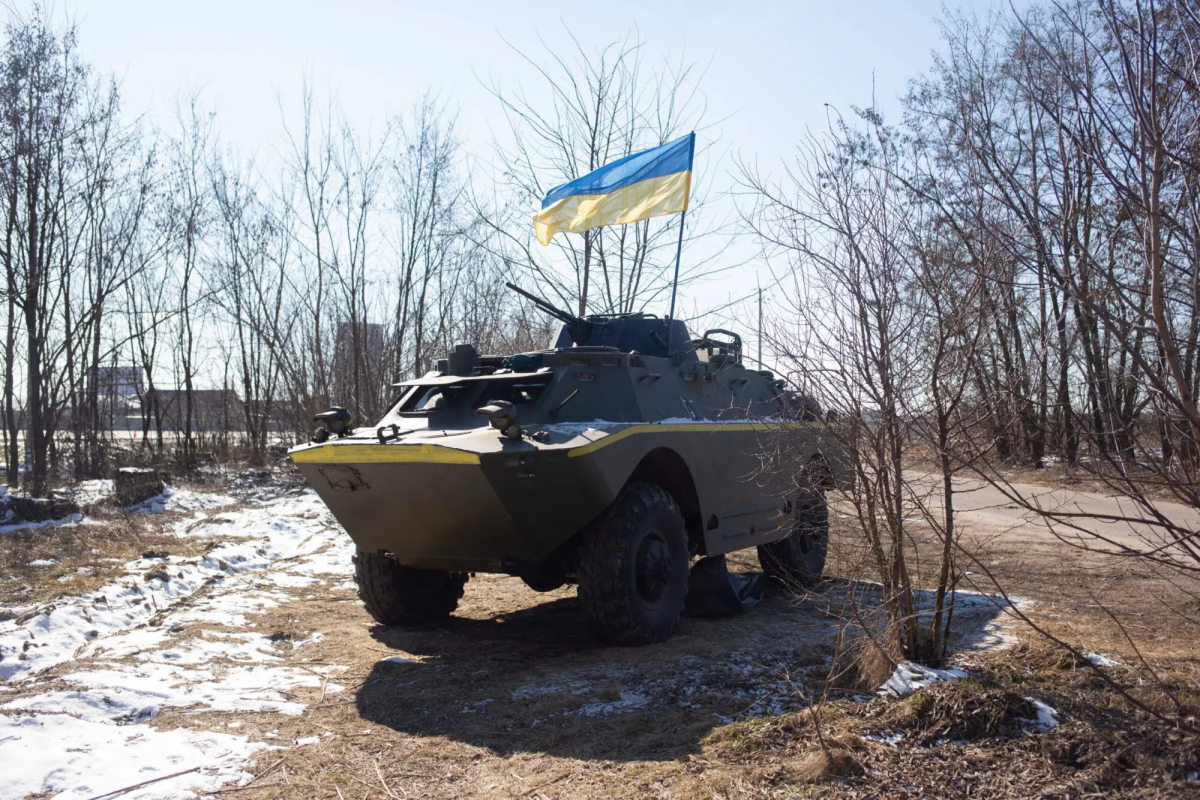
At some point, Russia’s war on Ukraine will end. When it does, guaranteeing stability in the region will depend on Ukraine joining the NATO alliance. The United States Congress should reiterate America’s support for Ukraine's NATO membership now.
American leadership in shaping a new set of rules following World War II continues to be a stunning success.
The North Atlantic Treaty was signed in Washington in 1949 at a meeting of foreign ministers called by then-U.S. Secretary of State Dean Acheson. To this day, when a country joins NATO, the relevant documents are deposited with the United States government, per the treaty.
The North Atlantic Treaty was the military counterpart to America’s Marshall Plan to rebuild Europe’s economy after the war. The Soviet Union — the predecessor state to today’s Russian Federation — forced its new satellite states to keep out of the Marshall Plan and NATO.
When the Soviet Union collapsed in 1991, many of the countries formerly dominated by Moscow quickly applied to join the alliance. They knew of Russia’s historical appetite to dominate its “near abroad,” and membership in NATO would protect these reborn nations from again falling under Moscow’s control.
To this day, Russia has refrained from attacking any member of NATO.
American policy concerning NATO membership for Ukraine in the post-Soviet world has been long established. President George W. Bush supported Ukraine joining the alliance, as did both 2008 presidential nominees, John McCain and Barack Obama.
At the time, NATO membership for Ukraine was blocked by France and Germany.
Any “security guarantees” for post-war Ukraine will be meaningless without NATO membership. Russia signed the 1994 Budapest Memorandum recognizing Ukraine’s international boundaries in exchange for receiving Ukraine’s stockpile of Soviet-era nuclear weapons. Russia took the nukes, then Russian President Vladimir Putin tossed the memorandum and invaded, first in Crimea in 1994, then the broader invasion last year.
The only security which appears to carry any weight with Moscow is NATO — which is why the Soviet Union and now Russia have been trying to break the alliance since it was founded.
The American and European governments have assessed that Putin launched his 2022 invasion of Ukraine based on faulty reports from his intelligence services that Ukrainians would not vigorously resist his invasion and many would welcome the Russians as liberators. Putin, like other dictators, suffers from having surrounded himself with appointees who will not tell him what he does not want to hear.
To ensure the Kremlin receives the message loud and clear, Congress should pass resolutions reiterating American support for Ukraine’s bid to join NATO. Failing to do so will allow Putin to believe he can hold open the door to come back for more of Ukraine, if it remains outside NATO alliance protection, at some point in the future.
In supporting NATO membership, America is supporting the same path for Ukraine that produced great success for other countries as they were freed from Moscow’s domination.
The Czech Republic and Poland were among the first Eastern European nations to join the alliance, giving them powerful security guarantees. Continued democratic reforms followed, and each country eventually joined the European Union. Ukraine, without any security guarantees, has been reforming and becoming a stronger democratic country under the constant threat of a Russian invasion. In 2014, that threat became a reality. With a decade-long conflict with Russia and proven military ingenuity and successes, Ukraine has proven itself on the battlefield. Once Ukraine has a clear path to ascension to NATO, it will have the same freedom to accelerate the economic and political reforms needed to become a successful European democracy. Democracy cannot exist in a security vacuum.
Ukraine will have earned its NATO membership in a way unique to the alliance — its military will be one of the largest and best experienced. Its citizens and members of its armed forces are paying for membership every day with both blood and resolve. America should reaffirm its support for Ukraine to join the NATO alliance.
Ron Nehring is the national spokesman for Ukraine Strong. He previously worked as the presidential campaign spokesman for Sen. Ted Cruz (R-Texas) and is a former chairman of the California Republican Party.